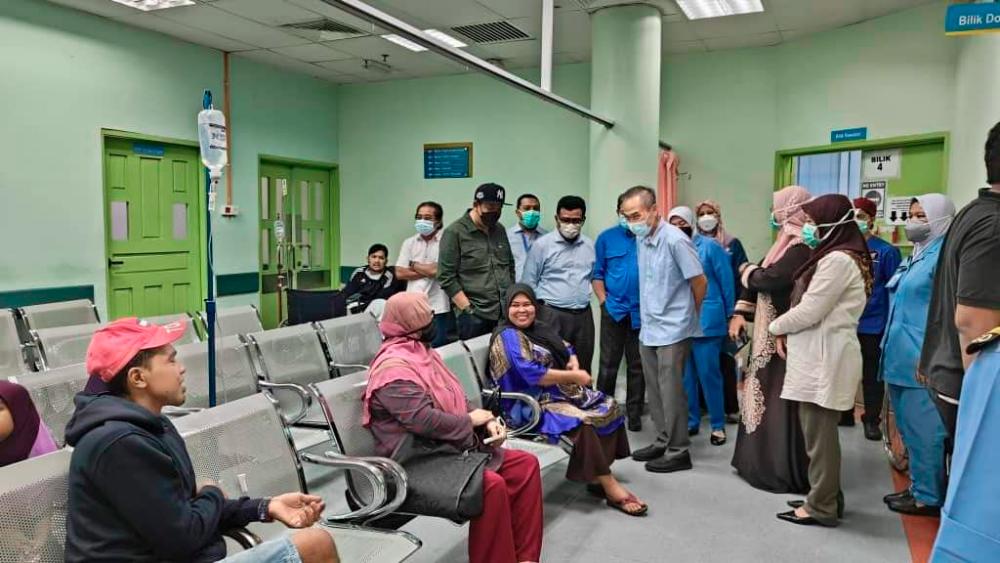PETALING JAYA: A major lifestyle change, eliminating junk food from schools and a planned collaboration with the private sector could relieve pressure on the healthcare system and the economy as a whole, said experts.
The aim of the move is to curb non-communicable diseases (NCD), that have a significant impact on the country’s gross domestic product.
A joint report by the Health Ministry and the World Health Organisation (WHO) in 2020 revealed that absenteeism, presenteeism (decreased productivity when employees are not functioning properly at the workplace) and premature death of the working age population caused by NCD in Malaysia resulted in economic losses of more than RM8.91 billion, while disability and loss of healthy life years caused losses estimated at RM100.79 billion.
The report was titled “The Impact of Noncommunicable Diseases and their Risk Factors on Malaysia’s Gross Domestic Product (2020)”.
Last year, another report by the ministry and WHO – “Direct Healthcare Cost of Noncommunicable Diseases in Malaysia (2022)” – stated that hospitalisations, medical tests, medication and primary care consultations for NCD, particularly cardiovascular diseases, diabetes and cancer, annually cost the country more than RM9.65 billion.
Malaysian Medical Association (MMA) president Dr Muruga Raj Rajathurai said the risk of NCD like diabetes, heart disease, hypertension and certain cancers can be significantly reduced with adoption of a healthy lifestyle, but many only begin to value their health when they are stricken with diseases.
He said upon being diagnosed with such a disease, one needs to observe a strict diet, take medication for a long term and even avoid certain physical activities.
“The restrictions can have an impact on a person’s mental health. Many go through depression as they try to adjust to a new way of living.
“The increase in the number of NCD patients is also contributing to overcrowding at public healthcare facilities. That is a concern as it means that patient loads are high and the resources are stretched. It can have an impact on the delivery of care.”
Muruga Raj also said the government plans to implement the Madani Medical Scheme, a public-private collaboration in which “Green Zones” (non-urgent) cases will be outsourced to private general practitioners to reduce overcrowding at public healthcare facilities.
He added that MMA hopes the plan would include NCD cases, as that would take a load off overworked healthcare workers.
He was referring to a scheme proposed by Prime Minister Datuk Seri Anwar Ibrahim during the the Budget 2023 presentation last month.
Muruga Raj said RM120 million was being allocated to allow people to obtain treatment for non-serious cases at private clinics and healthcare facilities.
“Most importantly, we need prevention of NCD at the early stage... at a young age, in schools. Healthy eating, exercise and proper rest are habits that should be formed from a young age so that these habits continue into adulthood and even practised in old age.”
He pointed out child obesity is also a serious concern in Malaysia, with many children unaware of the dangers of overeating and consuming high-sugar, high-salt and processed foods, that may cause children to develop metabolic issues.
Muruga Raj called for junk food to be completely eliminated from schools and even in areas outside the school compound.
“Parents also play an important role in the prevention of NCD. If they have an unhealthy lifestyle, their children might follow their example and be at risk of NCD later on in life.
“One should bear in mind that it costs more to treat than to prevent (health issues). MMA advises the public adopt a healthy lifestyle and make it a point to go for scheduled medical check ups to be in the best of health.”
Former deputy health minister and cardiologist Dr Lee Boon Che said sedentary lifestyles have lead to an increase in the number of NCD in the country, adding that in the long term, the only and best way to ensure a healthy nation is to promote a healthy and more physical lifestyle.
“Also, the public should be encouraged to undergo regular check-ups to stop the spread of NCD, which is a growing problem for the health system.
“Failure to do so will only lead to higher health costs for the government, which will create a bigger burden on public finances. Even at present, the allocation for public health is insufficient as it is about 4% to 5% of GDP but in actual fact, it should be 6% to 7%.”
Lee said one way to deal with spiraling health costs is for the rich to contribute more to the public health system.










